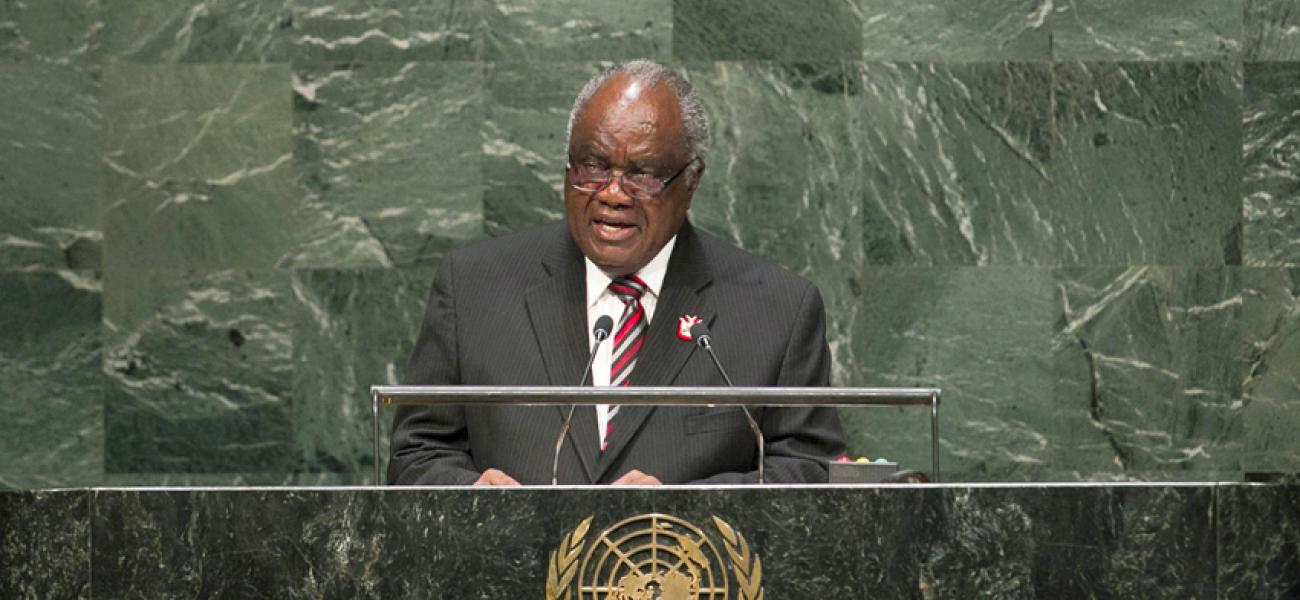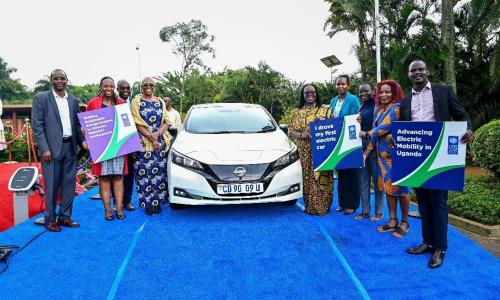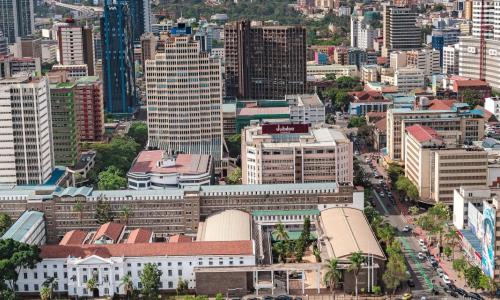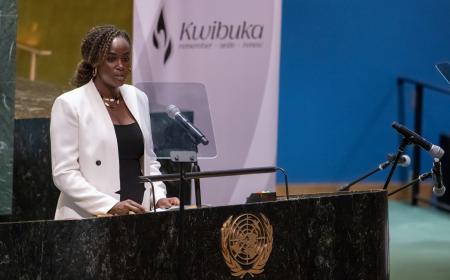26 September 2014 – Availing themselves of the spotlight afforded by the annual high-level meeting of the General Assembly, African leaders served notice today that the multi-year United Nations agenda for sustainable development now being drawn up must address fully their continent’s specific concerns.
“It is vital to ensure that the concerns articulated in the African Common Position are fully integrated in the Post-2015 Development Agenda,” President Hifikepunye Pohamba of Namibia told leaders from 193 countries on the third day of the Assembly’s 69th annual General Debate, referring to the major issue of this year’s session, which is to set ambitious sustainable goals for decades to come.
He noted his own country’s achievements in attaining the UN anti-poverty Millennium Goals (MDGs) adopted in 2000 that are due for completion at the end of next year, citing the reduction of extreme poverty by more than half, improved health care, and 100 per cent primary school enrolment
Mr. Pohamba said the multiple crises facing the world, from the Ebola epidemic in West Africa to armed conflict and terrorism to sustainable development can be resolved if States adhere to UN principles. “These challenges are not insurmountable,” he said.
“They demand steadfastness and unity in confronting and overcoming them. They demand that we resolutely reaffirm our faith and move forward guided by the enduring values and principles of the UN Charter and all that it stands for. These values should guide our discussions during this session.”
Noting that developing countries, particularly African and island States, continue to bear the brunt of the adverse effects of climate change, including floods, droughts and soil erosion, he appealed for meaningful global agreement in Paris in December 2015 following the summit Secretary-General Ban Ki-moon hosted on the issue at UN Headquarters in New York earlier this week.
Mr. Pohamba’s concerns on the development were echoed by Côte d’Ivoire President Alassane Ouattara, whose country the UN aided in restoring stability and democracy following civil war and division. “The post-2015 development agenda must pay special attention to the priorities of developing countries, notably those of Africa,” he told the Assembly.
“For this reason, intergovernmental negotiations must be inclusive, balanced and achieve precise and measurable goals to facilitate their adoption by States and regions ... We must at last give a decent life to the most vulnerable; we must also give our planet respite and a chance to exist for the centuries to come.”
Mr. Ouattara warned that Africa’s development remains hostage to its security environment, including an “unprecedented explosion of terrorism” from the Horn of Africa to the Sahel, maritime piracy, various drug and other trafficking criminals, and most recently the Ebola epidemic.
“The present international mobilization against terrorism and extremism is healthy, but it would gain by being extended to Africa… Africa must not be the forgotten continent in the struggle against terrorism,” he said.
“In the Sahel and against Boko Haram, the great powers and the United Nations must go further in their support for the continent and show the same determination that the French did against terrorists in Mali.”
For Guinean President Alpha Condé, Africa’s need for its interests to be addressed in the sustainable development agenda were also a prime concern, even though the Ebola epidemic currently sweeping his country and neighbours, Liberia and Sierra Leone, is of more immediate urgency.
“If Africa fares well, then the rest of the world will feel better,” he said. “For this new Africa, more ambitious and more promising, aware of its rich economic and human potential, is from now on ready to assume its responsibilities.”
He thanked the United Nations, the United States, Doctors without Borders and other partners for their help in combating the Ebola epidemic which has cut Guinea’s projected growth by 2.5 per cent.
“The Ebola epidemic reminds us of the incontrovertible need for a global approach to contain and conquer this terrible disease,” he said.
Republic of Congo President Denis Sassou-N’Guesso noted that African leaders have already adopted a common position for the Post-2015 Agenda to confront the challenges facing the continent.
“We appeal for the solidarity and engagement of all Member States to place this common position at the heart of our negotiations for the adoption the Post-2015 Agenda,” he said.
He declared his trust in the UN as the sole instrument that the world has in confronting the numerous crises facing it, from terrorism and epidemics to climate change to inequality both between and within States.






